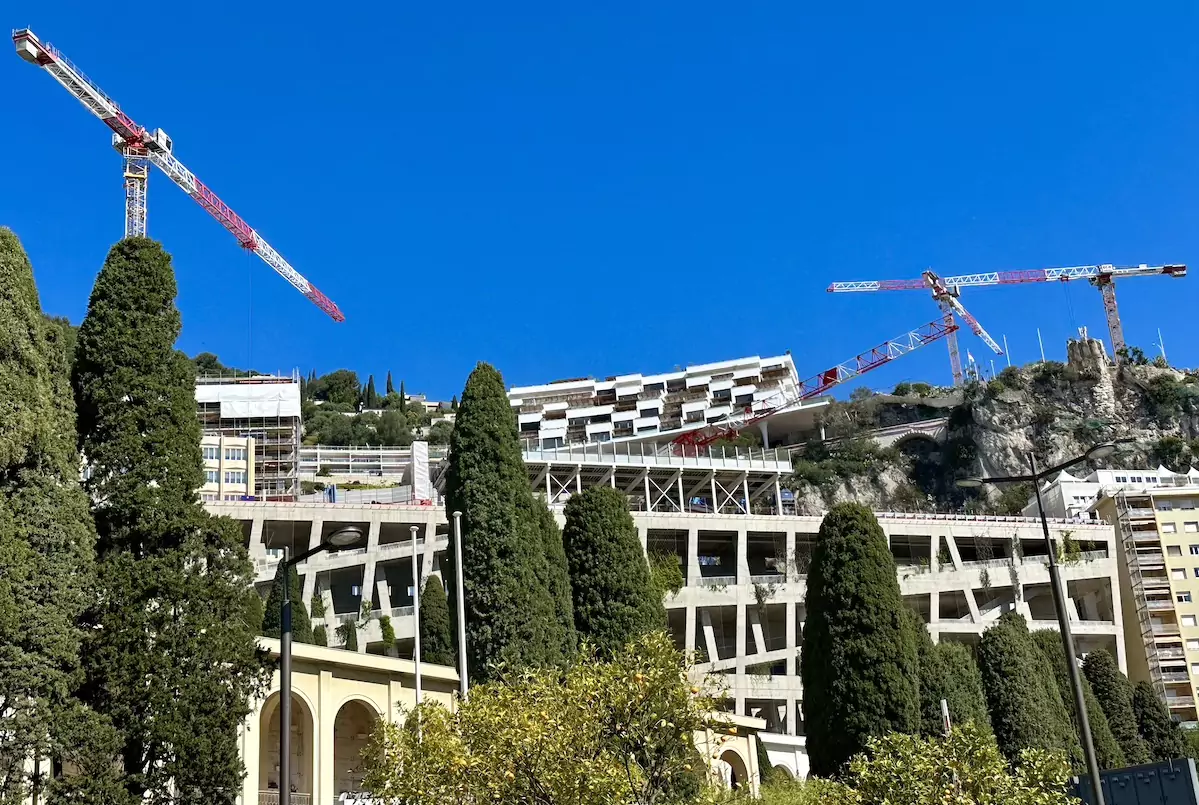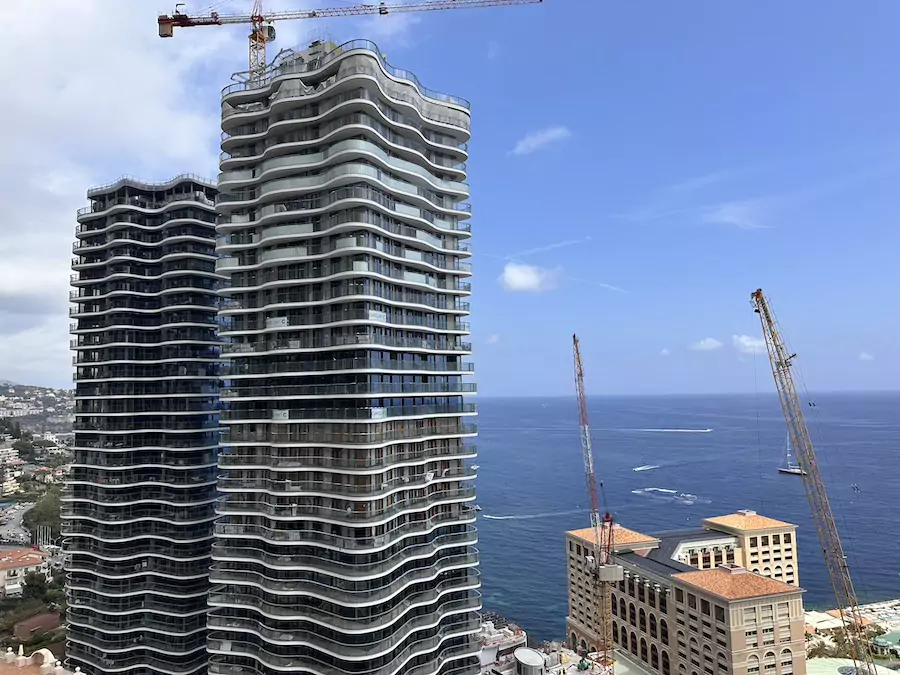Whether you’re a prospective buyer, a seasoned investor, or simply leasing property in Monaco, understanding the complexities of one of the world’s most exclusive real estate markets is paramount. We speak to real estate lawyer Sophie Marquet to unravel the layers of challenges inherent in the pursuit of property transactions in the Principality.
Sophie Marquet is head of the Real Estate and Construction team at CMS Monaco. She is also one of the founding partners, an Avocat Défenseur at the Monaco Bar, and she has spent close to 20 years practising in the Monaco real estate market, both in litigation and counselling.
As Sophie Marquet explains, the Monaco property market is unlike anywhere else in the world, and given the sheer amount of money involved in any property transaction here, it makes sense to take certain steps and precautions.
Monaco Life: How does the Monaco real estate market differ from that in neighbouring France and other cities in the world?
Sophie Marquet: The size of the territory of Monaco makes the value of property extremely high here, and just Monaco itself – the environment, the safety of the Principality – makes it so special that it significantly increases prices. Combined, this makes it a very unique market in terms of value.
With this value comes many consequences, because owning real estate in Monaco is an investment, and people want to protect that investment. Not getting authorisation to undertake building works, for example, can have significant impact on your investment.
What is the difference between a real estate lawyer and a notary, which is mandatory for all property sales in the Principality?
There is a difference in the mission of a notary and a lawyer. Notaries guarantee the legality of a deed, and the fact that ownership of a property cannot be challenged by third parties. Most of the time, the notary is acting for both parties.
Our mission, as lawyers, is to make sure the transaction protects your best interests, either as a vendor or buyer, in view of your specific objectives, which requires independent and tailored advice.
See also: Real estate: Family homes dominate Monaco’s property market growth
How soon should people seek legal advice?
As early as possible, because anything that is signed may be legally binding, and at that point you may be committed and engaged in liability or risk forfeiting a deposit as a purchaser.
Meanwhile, the costs of getting out of a binding contract – if at all possible – or the costs of litigation and legal advice later on in the process may be a lot higher than getting advice upfront.
People tend to see lawyers as litigators only, necessary for when there is a battle or problem to resolve, which is of course important. But lawyers are also here to provide advice upfront so you have a clear path, especially considering the value of real estate in Monaco.
In the early stages, people are generally only assisted by real estate professionals, who are very skilled at providing professional advice on aspects like the quality and value of the property, but not necessarily in legal aspects, and most importantly not on the pitfalls of acquisitions.
Often, the issues that we see relate to those preliminary documents, or later on when plans to do building works in the property are not given appropriate authorisations. These are the kinds of issues that could have been anticipated at the purchase phase. So, as soon as the project comes into your mind, I think you should seek advice.
What should buyers pay attention to in Monaco?
Buyers need to pay attention not only to the property itself, but also to the building, because most of the works being done need governmental and co-ownership authorisations.
It is very important that you know the rules of co-ownership in advance, and have information on the co-ownership of the building you are purchasing in, if doing works is important to you.

Are regulations more strict in Monaco?
I wouldn’t say they are more strict; I think they are carefully adapted to the specifics of the Principality and the market, but I can say that there are more instances where a permit for works is required, as opposed to France, for example.
What advice do you give people who are renting a property in Monaco?
Firstly, if something is of particular importance to a tenant, they should read the lease carefully before signing, because a lease is a contract, and once a contract is signed, they have to comply with it. For example, check simple things, like if animals are allowed in the apartment if you have a pet.
Secondly, I would encourage seeking legal advice as early as possible when you feel that there may be an issue with your rental relationship. Open and honest discussion with the landlord is always useful, but just don’t wait too long before you get legal advice. I hear a lot of misconceptions on tenants’ rights and duties in Monaco.
See also: Property prices at record levels in almost all Monaco neighbourhoods
And your advice for landlords?
Landlords should also carefully draft their lease agreements, and assess the quality of the tenants prior signing, for predictability reasons.
Most importantly, landlords should carefully follow any defaults on the rental payment, as to avoid accumulating large debts. They are legitimate in requesting from the agencies to whom they confide the management of the property, that they reserve their rights and / or take legal action sooner rather than later, being conscious of any sign that a tenant may not be able to pay the rent any longer, or may even leave the Principality.
Because once they leave Monaco to enter another jurisdiction – even France – it makes the process of recovering the money more complicated. I see a lot of benefit to the landlords who take provisional measures upfront.
Airbnb rental is an issue that is being heavily debated in France and throughout Europe. How can owners prevent their property being used for financial gain, particularly during events such as the Monaco Grand Prix?
Landlords who do not want to allow sub-letting should make sure they carefully draft this into their lease agreements, and they should take immediate action in court to prevent/stop the practice if they find that there has been a breach of the contract.
My advice for the tenant is to very carefully read the lease agreement because there may be a risk of the lease being terminated for that reason alone.
And it is important to remember that Airbnb is a public platform, so it is very easy for someone to prove that their apartment was placed on Airbnb.
Building work is an essential part of property rights, but it can also be a real nuisance for neighbours. What advice would you give owners to preserve the value of their property?
There are rules within co-ownership, set by the règlement de copropriété, that the buyer is subject to. When you want authorisation for certain works, there are different types of votes, from the lenient to the strictest. Often, it may end up in a discussion/negotiation to compensate for the potential nuisances anticipated as a consequence of the projected works, regardless of whether the building rules – as complied with by the architect – have been thoroughly checked.
What we often see is that when someone wants to do works that will have an impact on the co-ownership because of noise or disturbance, the person can offer the co-ownership advance compensation – financial, repairing damage, or repainting regardless of damage, for example. This may facilitate obtaining a vote if the co-owners fear future nuisance. Old buildings are obviously more fragile, so the co-ownership is very legitimate in being concerned that the works could compromise the building.
In short, owners who would like to do building work in their property should seek legal advice early in the process beyond the assistance of their architect.

Construction works and the development of new high rise buildings are a constant in Monaco. What are peoples’ rights in this regard?
If you want to have more information about potential building projects near a property you plan to buy or rent, take advice from a lawyer. We are able to determine the governmental authorisations in the area, and analyse whether it is subject to public/private easements. This will show if any properties have a restriction on being built any higher. A lot of people don’t actually do these checks, but it can be very useful, especially in a place like Monaco.
What about loss of sunlight and/or view by new building projects?
Some people think they have a right to sunlight and a view, per se, but that is not necessarily the case. Because Monaco is a small area, you cannot assume that there will never be a major project next to yours.
Firstly, we would make an analysis to assess building regulations and to determine if there is a private easement, as I mentioned earlier, that prohibits such a type of construction.
If you know that there will be a major project next to your home, seek legal advice. Beyond the legal analysis of any existing easements, we also work with experts, who can, for example, calculate how the light enters the apartment and from which angle, and how a new building may impact that light. The more proof you have, the better case you have in court to prove that you have a real prejudice.
It is possible to ask the jurisdiction to appoint an expert to analyse the impact before and, maybe in some extreme cases, stop the project completely pending further investigation.
If a tenant is renting a more luxurious property in Monaco but does not get the services promised and expected in the deal, what should they do?
Renting an exceptional property generally comes with exceptional services and materials, etc. So while the tenant is due to the pay the rent and comply with all the rules, the landlord also has a duty to provide the services contracted so that the tenant has jouissance paisible (peaceful enjoyment) of the property.
We have seen with case law that jurisdictions tend to recognise the prejudice caused by the landlord to the tenant for not providing the standards expected from renting such property, and to award damages. Such damages may compensate with the rents due where the tenant has defaulted in rental payment.
But it is important to note that a tenant is not entitled to default on rental payments first, just because there is a loss of service; they are risking termination of the lease. This is a typical case of seeking advice.
Read also:
Join the Monaco Life community – sign up for the Monaco Life newsletter, and follow us on Threads, Facebook, Instagram, LinkedIn and Tik Tok.
